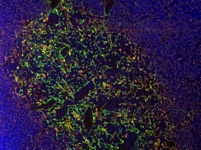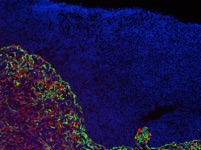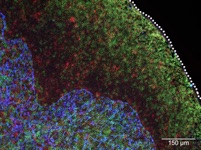Thymic lymphomagenesis
T cell acute lymphoblastic leukemia/ lymphoblastic lymphoma (T-ALL/LBL) is a predominantly pediatric malignancy that arises from aberrant differentiation and unchecked proliferation of developing T cells. ALL is the most common pediatric malignancy, with T-ALL representing ~15% of these cases. While intensified chemotherapeutic regimens have increased 5-year event free survival rates to ~75%, patients who fail to respond to therapy or who suffer relapse have poor prognoses. Thus, development of molecularly targeted, less-toxic therapies to improve patient outcomes and decrease treatment-associated morbidity remains an important goal. Given the obligate cross-talk between healthy developing T cells and thymic stromal cells, and the clear contribution of signals in the tumor microenvironment to progression of other malignancies, we hypothesize that the altered tumor microenvironment in T-ALL contributes to disease initiation and progression. We are currently using a variety of approaches, including molecular genetics and two-photon microscopy, to study interactions of lymphoma cells with tumor -associated stroma to identify the molecular and cellular cues in the tumor microenvironment that promote T-ALL growth. These molecular interactions will yield candidates for novel targeted therapeutic interventions.







